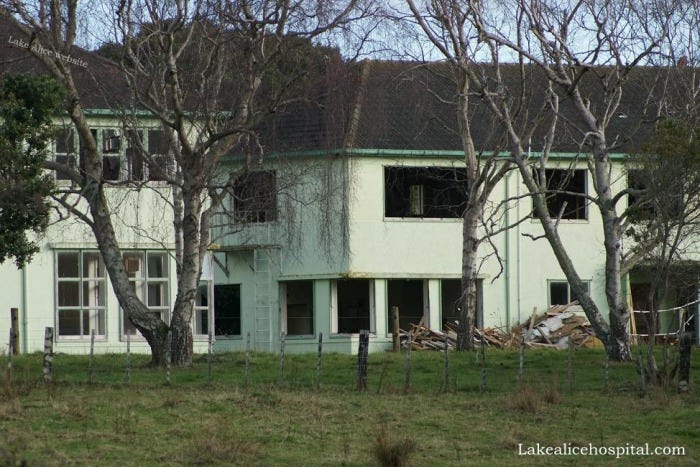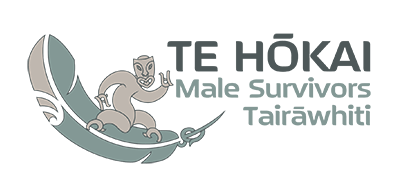Yesterday I happily quoted the Prime Minister without fact-checking him and sure enough, it turns out his numbers were all to hell. It’s not four kg of Royal Commission report, it’s fourteen.
My friend and one-time colleague-in-comms Hazel Phillips gently alerted me to my error almost as soon as I’d hit send and let me just take a moment to say: if you want someone who is almost supernaturally good at comms management, Hazel is who you’re looking for.
She also asked if I’d like a personal perspective about having read hundreds of witness statements. Most definitely I said. Here’s what she wrote, and I could not be more grateful.

Not A Story
Hazel Phillips
I knocked on the door of the Royal Commission of Inquiry into Abuse in Care four times before they finally gave me a job. I wanted to work there partly out of a sense of purpose, but also because I found it simply unthinkable that these things had happened in Aotearoa New Zealand.
It’ll be grim, my comms friends warned me. “I couldn’t do it,” one said. “Knowing about that stuff would affect me way too much.”
I spent nearly two years reading hundreds of witness statements and rewriting them into survivor experiences. I use the term ‘survivor experience’ not ‘survivor story’, because ‘story’ sounds like we’re still doubting them, that they’re making it up. Like it’s not really real.
This shit was very real, and while I could close my laptop at the end of the day and walk away from it, survivors who were held in boys’ homes, girls’ homes, psych institutions, disabled homes, unwed mothers’ homes and more, couldn’t simply walk away when it got too much.
After reading hundreds of witness statements, here’s a snippet of what I know.
The abuse you can visualise in your mind – of someone being given electric shocks at Lake Alice, or perhaps beaten up by the kingpin in a boys’ home – is barely a scratch on the surface. Little boys were anally raped, repeatedly, by religious people who weaponised their positions of power and authority, raped while their abuser whispered in their ear that nobody cared about them and nobody would believe them. Disabled people were overmedicalised because their symptoms were ‘inconvenient’, turned into zombies, stripped of their autonomy and decision making. Unmarried mothers had their babies taken off them and were denied information about the DPB or ways they could have kept their children. Women in psych institutions were put into straitjackets and raped, then given abortions without their knowledge or consent. And more, and on, and more. So much more.
This abuse wasn’t just ‘bad apples’, a few disgusting, sick people who perpetrated bad things – like Selwyn Leeks at Lake Alice – but rather, entirely systemic. Abuse happened because the system allowed it to. Because society allowed it to. Because legislation allowed it to. We have a shameful history: the 1911 Mental Defectives Act categorised people as ‘idiots’, ‘imbeciles’, ‘the feeble minded’ and ‘epileptics’ as well as ‘persons of unsound mind’ and ‘mentally infirm’. The 1954 Mazengarb report, sent to every household in New Zealand, whipped up moral panic over so called ‘juvenile delinquency’, blaming an increasing ‘promiscuity’ of the youth on, among other things, young women enticing men to have sex. This was the perfect background for shutting up problematic youth in boys’ and girls’ homes – where they were sexually, physically, emotionally and psychologically abused and neglected. We have a strong history of eugenics – the idea that we can control reproduction (in other words, stop disabled people from having babies) in order to ensure fewer ‘defectives’ in the population. Many New Zealanders don’t know about this history we all share as Kiwis.
Survivors were constantly and consistently not believed, labelled as liars and troublemakers. If they ran away to escape the abuse, the consequences got worse than ever. Sometimes, all they wanted was just to get home to Mum for a cuddle.
Survivors, meanwhile – well, they survive, but some don’t; many have ended their lives. Some formed gangs (it’s well proven that state care is responsible for the formation of gangs). Some went on to become high achievers and help troubled youth in the ways they would have liked for themselves.
Many, many, have acted as circuit breakers to end generations of abuse.
A common thread across survivors’ witness statements was that an apology was paramount, and while compensation would be helpful, their aim was simply to make sure this sort of abuse never happened to any kid again, ever. I read this at the end of nearly every single witness statement. We have to change.
Finally, and tragically, the government isn’t learning from this. Our fearless leaders are full steam ahead with a bootcamp pilot at the same time the final report is being tabled. We know bootcamps don’t work but it sounds good down at the pub, doesn’t it? Get those shithead kids into the system, smarten them up. Give them something to cry about! Sort them out! History repeats itself, until we sit in stillness and listen to the lessons it is handing to us.
I am humbled by the survivors who have come forward to give their experiences to the Royal Commission, to be circuit breakers in the abuse carried out by state and faith-based institutions. I am inordinately proud of a 14kg report that has finally given survivors a voice, and I hope it’s real heavy for our leaders to carry around.
Kia kaha to all survivors and their whānau. Stand strong in the internal power we all possess.
By David Slack
